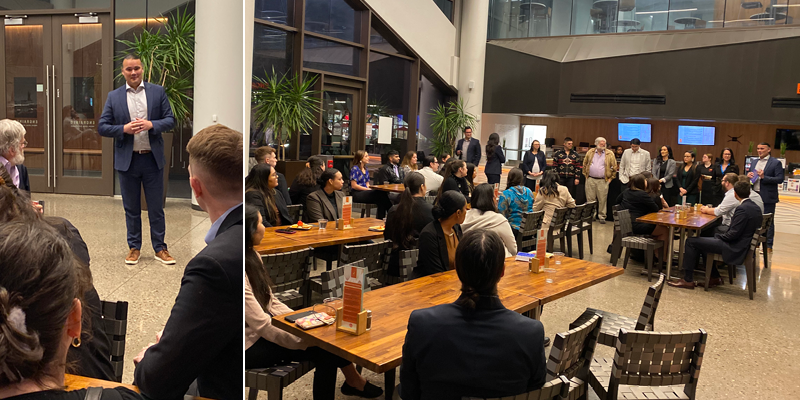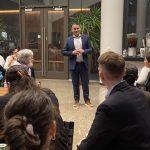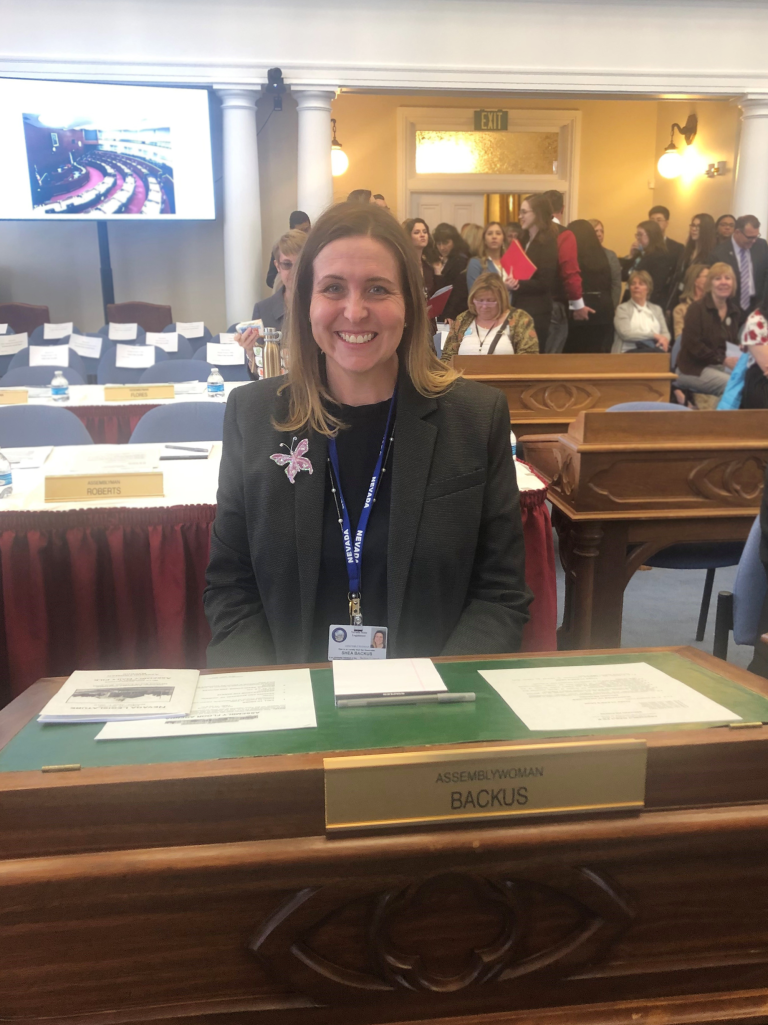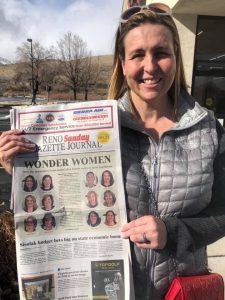Shea Backus (’03) is a shareholder of Backus | Burden, a civil / commercial litigation firm in Las Vegas, Nevada. Shea has been elected to serve as an Assemblywoman in the Nevada State Legislature representing District 37. This is her second time to serve. She will have the honor to chair Revenue and serve as vice-chair of Ways & Means.
Q: What has your journey been like since you graduated?
A: It is almost 20 years since I graduated, and it does not feel that long. I have been in private practice since graduating. I started working for my dad’s small firm in Las Vegas right after law school, and am now a shareholder. I have had the privilege of being able to practice in the State of Nevada, as well as three tribal courts.
Four years ago, I decided to run for our state legislature. I won in 2018, lost in 2020 and won in 2022. I’m looking forward to serve my second regular session starting February 6, after serving in one regular session in 2019 and two special sessions in 2020. From my service in 2019, I was appointed to the Uniform Law Commission. Since then, I have been a Commissioner for Nevada. I am proudly on a study committee looking at a uniform or model code addressing issues related to the Indian Child Welfare Act. I am also exploring a bill to address any issues pertaining to ICWA in light of pending matters before the U.S. Supreme Court.
Q: What is the most valuable lesson you learned in the classroom that has helped you in your career?
A: Legal Writing! ASU’s legal writing program definitely prepared me for the practice of law.
Q: Is there anything you’ve learned after graduating that you wished you learned in class?
A: The difference between practicing law and studying in law school. This is more on me and less on the law school. At the time I was at ASU, I had no idea that I would be a litigator, so I never took any classes that would have prepared me for the litigation world.
Q: What originally made you choose ASU Law?
A: Reputation, ILP and closeness to home.
Q: Who was your favorite law professor, and why?
A: Professor Clinton. While I thought he was terrifying as my Indian Law professor, I came to appreciate him through his involvement with ILP and then as a professor of an Indian Gaming course that I took.
Q: What is your advice for current students?
A: Develop your legal writing and research skills while you are in law school as this will provide a great foundation to being a respected practitioner. Also, work harder than your opponent and you will succeed!
Q: What do you want people to know about you?
A: I am truly proud of setting history by serving in the first female majority state legislature in U.S. history. When I won a seat that a lot of people thought I could not win because of my political party, it created the pathway to that majority female legislature. I am also humbled and surprised to be the first female, enrolled in a tribe, to serve in the Nevada State Legislature. This has provided me with an understanding in addressing bills that can impact our tribal communities and urban Indians.







